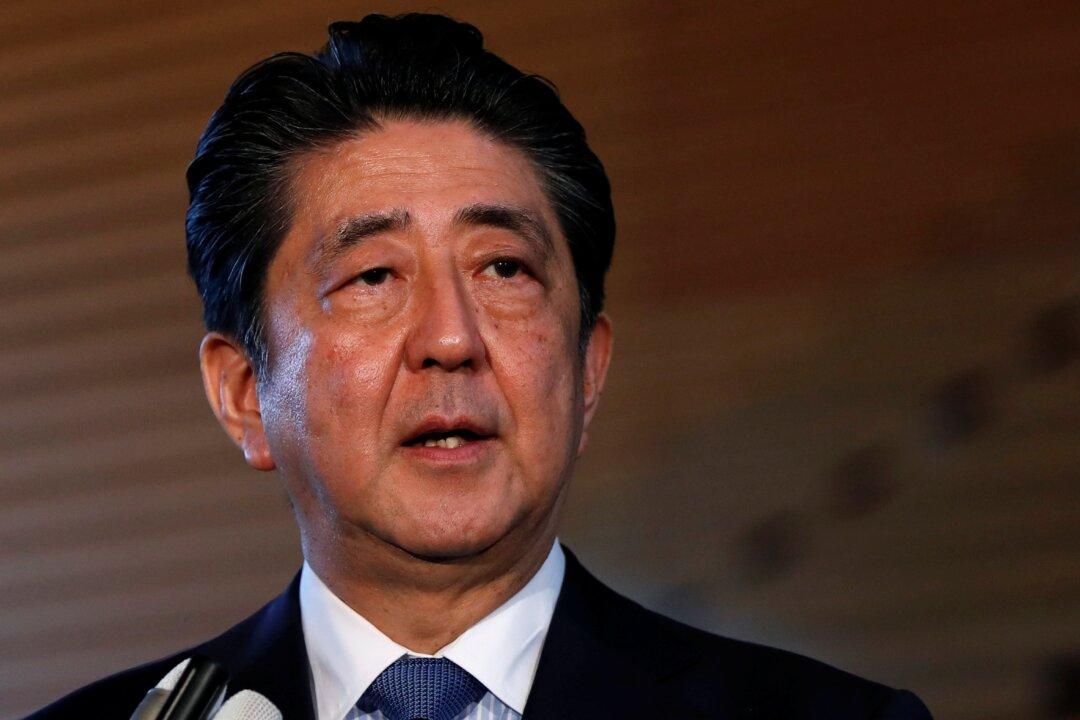Taiwan’s president ordered public institutions to fly national flags at half-mast on July 11 to honor former Japanese Prime Minister Shinzo Abe, who was fatally shot while delivering a campaign speech on July 8.
President Tsai Ing-wen said on July 9 that she instructed her government to fly flags at half-mast for a day to mourn Abe’s demise and honor his “great friendship” with Taiwan.





